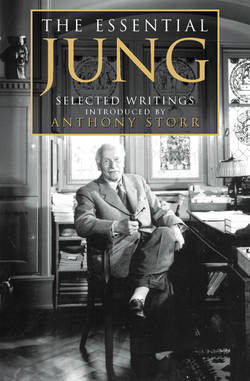Читать книгу The Essential Jung: Selected Writings - Anthony Storr - Страница 10
From “School Years” MDR, pp. 44–6/33–4
ОглавлениеAround this time I was invited to spend the holidays with friends of the family who had a house on Lake Lucerne. To my delight the house was situated right on the lake, and there was a boat-house and a rowing boat. My host allowed his son and me to use the boat, although we were sternly warned not to be reckless. Unfortunately I also knew how to steer a Waidling (a boat of the gondola type) – that is to say, standing. At home we had such a punt, in which we had tried out every imaginable trick. The first thing I did, therefore, was to take my stand on the stern seat and with one oar push off into the lake. That was too much for the anxious master of the house. He whistled us back and gave me a first-class dressing-down. I was thoroughly crestfallen but had to admit that I had done exactly what he had said not to, and that his lecture was quite justified. At the same time I was seized with rage that this fat, ignorant boor should dare to insult ME. This ME was not only grown up, but important, an authority, a person with office and dignity, an old man, an object of respect and awe. Yet the contrast with reality was so grotesque that in the midst of my fury I suddenly stopped myself, for the question rose to my lips: “Who in the world are you, anyway? You are reacting as though you were the devil only knows how important! And yet you know he is perfectly right. You are barely twelve years old, a schoolboy, and he is a father and a rich, powerful man besides, who owns two houses and several splendid horses.”
Then, to my intense confusion, it occurred to me that I was actually two different persons. One of them was the schoolboy who could not grasp algebra and was far from sure of himself; the other was important, a high authority, a man not to be trifled with, as powerful and influential as this manufacturer. This “Other” was an old man who lived in the eighteenth century, wore buckled shoes and a white wig and went driving in a fly with high, concave rear wheels between which the box was suspended on springs and leather straps.
This notion sprang from a curious experience I had had. When we were living in Klein-Hüningen an ancient green carriage from the Black Forest drove past our house one day. It was truly an antique, looking exactly as if it had come straight out of the eighteenth century. When I saw it, I felt with great excitement: “That’s it! Sure enough, that comes from my times.” It was as though I had recognized it because it was the same type as the one I had driven in myself. Then came a curious sentiment écoeurant, as though someone had stolen something from me, or as though I had been cheated – cheated out of my beloved past. The carriage was a relic of those times! I cannot describe what was happening in me or what it was that affected me so strongly: a longing, a nostalgia, or a recognition that kept saying “Yes, that’s how it was! Yes, that’s how it was!”
When Jung began work at the Burghölzli mental hospital, word-association tests were used as a means of studying the way in which mental contents are linked together by similarity, contrast or contiguity in space and time. Jung transformed their use into a tool for investigating emotional preoccupations; and his researches led him to formulate the notion of the “complex,” a term which he introduced.
